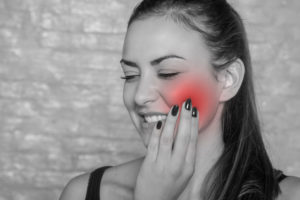What Teeth Grinding Could Do to Your Mouth
- Posted on: Jun 30 2018
 The team at Ridgeview Family Dental helps patients sustain oral health using innovative preventive and restorative dentistry designed to protect and repair dental problems. Our services range from routine exams for patients of all ages to the diagnosis and treatment of common issues like teeth grinding, or bruxism. Here, we want to discuss why it matters that you know if you or a loved one grind, and what you can do about this habit.
The team at Ridgeview Family Dental helps patients sustain oral health using innovative preventive and restorative dentistry designed to protect and repair dental problems. Our services range from routine exams for patients of all ages to the diagnosis and treatment of common issues like teeth grinding, or bruxism. Here, we want to discuss why it matters that you know if you or a loved one grind, and what you can do about this habit.
What is teeth grinding?
Teeth grinding is a condition that is exactly as it sounds; a habit of clenching and shifting or gnashing teeth. The tricky part about bruxism is that it happens while you sleep. Therefore, there is a higher chance that teeth, gums, and the jaw may be affected before the underlying issue is confirmed. Teeth grinding may initially seem like a minor nuisance. However, over time, the effects of this habit can become severe.
Why Grinding Happens
In many cases, bruxism is associated with unmanaged stress. It’s true that what stresses us during the daytime gets processed while we sleep. This may be through vivid dreaming, restlessness, or grinding. However, there are other reasons why a person may grind their teeth, such as:
- Bite misalignment
- Missing teeth
- Jaw injury or dysfunction
- Effects of certain medications
Consequences of Teeth Grinding
Cracks and Chips
Make no mistake, teeth grinding is aggressive. The force that is placed on teeth causes significant stress that can wear down enamel. The persistent force of opposing teeth gnashing against each other may eventually lead to a crack or chip. Once this slight damage has occurred, the tooth is more susceptible to sensitivity and further fracture when chewing or, as it often goes, grinding.
Gum Recession
The force that is exerted when you grind doesn’t end at your teeth. The pressure continues through each tooth into the gums and root areas. This transfer presses against the soft gingiva and can eventually cause recession, or pulling away from tooth structure. Gum recession is a potentially serious problem because it leaves roots vulnerable to oral bacteria and subsequent decay.
TMJ Disorder
Bruxism is one of the primary factors related to TMJ Disorder. The correlation is found in the pressure that is localized in the joints of the jaw (temporomandibular joints). TMJ disorder occurs when these joints are consistently stressed and placed into misalignment. Symptoms include clicking, pain, and possibly locking of the jaw.
Schedule a Consultation
If you suspect that teeth grinding is occurring while you sleep, talk with your dentist. A nightguard, which resembles a custom-fit mouthguard for sports, can be worn at night to minimize the force of bruxism. Call 660-747-9117 to schedule a visit to our Warrensburg or Oak Grove office.
Posted in: TMJ Treatment
